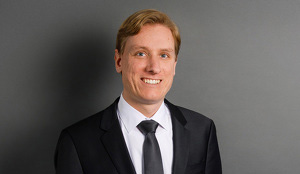German Act on the Further Development of Skilled Labour Immigration
“Today we have adopted the most modern immigration law in the world.“ This was recently announced by Federal Minister Nancy Faeser. The aim of the law is to facilitate the immigration of qualified persons and thus to support companies in Germany with the challenge of the shortage of skilled labour.
modern – fast – digital – family-friendly
In future, immigration of skilled workers will be based on a “three-pillar model”.
The first pillar, "skilled labour pillar," is the central element of skilled labour immigration. It is a significant change, that it will now be possible for any person holding a qualification recognised in Germany to pursue any profession (in non-regulated professions). A correlation between the degree and the profession is therefore no longer required. The law also includes the reduction of the required period of prior residence for the issuance of a settlement permit for EU Blue Card holders, as well as for skilled workers and their family members, thus making immigration more attractive.
The next pillar is the "experience pillar". From now on, work experience will also be given more importance. In future, an employee with two years of professional experience and a professional or university degree recognised by the country of acquisition may enter Germany if they provide proof of an employment contract with a sufficiently high salary. Recognition of the degree in Germany is then no longer necessary. This has the enormous advantage of saving time caused by bureaucratic procedures related to the recognition process. However, recognition remains necessary if the required salary threshold is not met. Nevertheless, to be able to guarantee the start of work in a timely manner, the possibility of a so-called “recognition partnership” is introduced. This is a new residence permit for employment with accompanying professional recognition. A characteristic feature of the “recognition partnership“ is that recognition of the foreign professional qualification must first be sought locally in Germany. It obliges the foreigner as well as the employer to initiate and actively pursue the recognition procedure after entry or after the residence permit has been issued. Furthermore, the opportunity card and thus a "potential pillar" will be introduced as a new residence permit. This allows entry and residence for the purpose of seeking work, based on a points system. Selection criteria include qualifications, language skills, and work experience. The opportunity card offers the possibility of trial work or secondary employment.
Innovations concerning the EU Blue Card
Comprehensive changes regarding the EU Blue Card have been introduced. For example, the law provides for the lowering of the existing salary threshold for standard professions to 50% of the annual contribution ceiling in the general pension insurance. This would put the minimum salary threshold at this year's income threshold at only 43,800 euros per year. In addition, an increase in the number of understaffed professions was made. Furthermore, it will be easier to change employers and family reunification will be simplified. Regulations were also introduced for the exercise of short- and long-term intra-EU mobility in the Federal Republic of Germany for holders of an EU Blue Card issued by another EU member state.
Further Innovations
The law also provides further innovations for educational migration. Through this, students are given an extended opportunity for secondary employment during their studies. Furthermore, the elimination of prohibitions on changing the purpose of residence will simplify the change between residence for educational purposes and residence for gainful employment.
With the approval of the Federal Council on July 7 2023, the law can now be forwarded to the Federal President, signed by them, and subsequently published in the Federal Law Gazette. Individual regulations are expected to become effective as early as this fall.
This is another big step in addressing the shortage of skilled labour.



